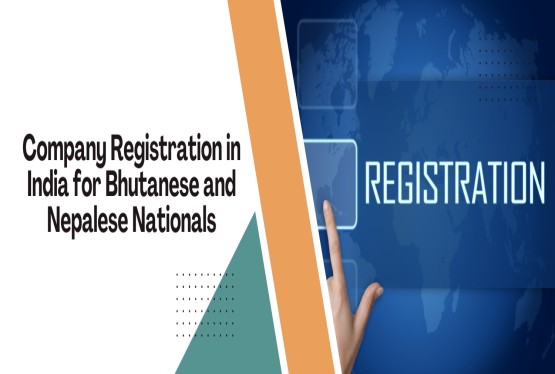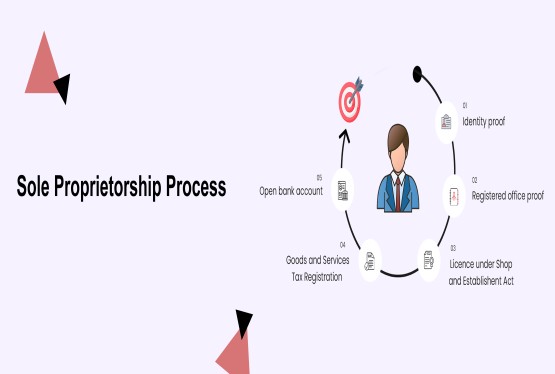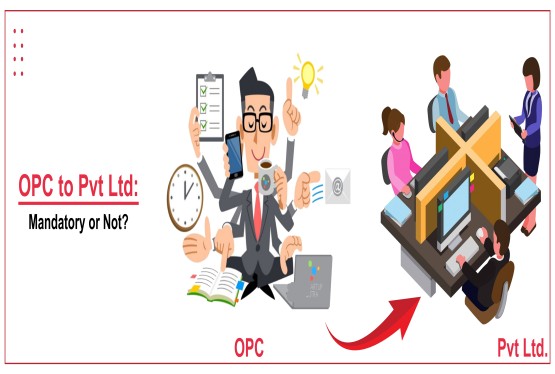India’s economy is vibrant with rapid growth and emerging as one of the most attractive business destinations in the world. As a developing nation with a stable economic outlook, India offers a sustainable and business-friendly environment for multinational corporations and global entrepreneurs alike. A stable political setup, responsive administration, and a well-established legal system provide a strong foundation for conducting business. The country’s abundant natural resources, cost competitiveness, low labour costs, and simplified tax structures further enhance its appeal. With a massive untapped market, a youthful population, and robust financial institutions, India stands out as a land of immense opportunity. Together, these factors make India not just a developing market but a thriving investment hotspot for foreign entities looking to expand their global footprint.
Legal structure
FDI policy in India
Foreign Direct Investment (FDI) refers to investment made by a person resident outside India into the capital instruments of an Indian company. These capital instruments typically include equity shares, debentures, or any other form of ownership stake as permitted by the Reserve Bank of India (RBI) under the Foreign Exchange Management Act (FEMA). FDI plays a vital role in bringing foreign capital, technology, and expertise into the country, contributing significantly to the development of the Indian economy.
Two Routes to Invest in India
There are two main routes through which foreign investment can happen in India:
Automatic Route
This is the simpler path. If your business sector falls under this category, you don’t need to take anyone’s permission before investing. You can go ahead and invest directly no approvals needed from the Indian government or the Reserve Bank of India (RBI). It’s a quick and hassle-free process, ideal for sectors like manufacturing, IT, and many service industries.
Government Route
Some sectors are a bit more sensitive or strategic like defence, telecom, or media. If you're planning to invest in these areas, you'll need to get prior approval from the Government of India. This means submitting a proposal, waiting for it to be reviewed, and only then making the investment. For those who fall under the Government Route, there’s a clear and detailed process to follow known as the Standard Operating Procedure (SOP). It tells you exactly how to apply, what documents you’ll need, and how long it might take. All proposals must be submitted online through the official government portal called the Foreign Investment Facilitation Portal (FIFP) at fifp.gov.in.
Press Note 3
As per Press Note 3, the Government of India revised its FDI policy to state that any entity or individual from a country sharing a land border with India such as China, Bangladesh, Pakistan, Bhutan, Nepal, Myanmar, and Afghanistan can only invest in non-prohibited sectors and only through the Government approval route. Additionally, if there is a direct or indirect transfer of ownership of existing or upcoming FDI in an Indian company that results in such border-sharing countries gaining beneficial ownership, prior approval from the Department for Promotion of Industry and Internal Trade (DPIIT) is mandatory for that ownership change as well. So, if Foreign Nationals is from the Myanmar, then he is also abiding by the press note 3 conditions.
Security Clearance Requirement for Directors from Bordering Countries
If you're a citizen of a country that shares a land border with India such as China, Bangladesh, Pakistan, Bhutan, Nepal, Myanmar, or Afghanistan and you're looking to become a director in an Indian company, there's an extra step involved. Before your appointment can be confirmed, you'll need to get security clearance from India’s Ministry of Home Affairs (MHA).
This means that when you're applying for a Director Identification Number (DIN), you'll need to attach your security clearance certificate along with the application. In addition, while filing Form DIR-2 (consent to act as director) and Form DIR-3 (DIN application) with the Ministry of Corporate Affairs (MCA), you’ll also be required to submit a self-declaration confirming the same.
This process ensures transparency and national security, especially when foreign nationals from sensitive regions are involved in Indian corporate structures.
Documents required for a foreign National from Myanmar to Register company in India
If you're a foreign national from Myanmar looking to register a company in India, you’ll need to submit certain key documents to complete the process online.
Passport – Proof of Identity
The passport is the most important identity document for foreign nationals in India. It must be either notarized or apostilled in the country where it was issued. If the passport is in a language other than English, it must first be translated into English, and then notarized or apostilled.
Also, if the passport doesn’t mention the date of birth, you’ll need to submit an additional certified or notarized document that confirms your date of birth. So, if there is a foreign national from Myanmar then he must have its passport.
Address Proof
Along with identity proof, you'll need to provide a current and valid address proof, which should also be notarized or apostilled. The name on this document should exactly match the name on the passport, and it must reflect the latest address of the foreign director.
Make sure the address proof is not older than one year.
Accepted address proof documents include:
-
Driving License
-
Electricity Bill
-
Telephone Bill
-
Mobile Phone Bill
Just like the passport, if any of these documents are in a foreign language, they must be translated into English and then notarized or apostilled.
Proof of Registered Office Address (India)
Once the director's identity and address proofs are ready, you’ll also need to submit documents that confirm the registered office address of the company in India.
Acceptable documents include:
-
Ownership documents or title deed (if the company owns the property)
-
Notarized rental or lease agreement, along with a recent rent receipt (not older than one month), if the property is rented. The agreement should clearly mention the company’s name.
-
No Objection Certificate (NOC) from the landlord, allowing the company to use the premises as its registered office
-
Recent utility bill (electricity, gas, water, telephone, etc.) in the landlord’s name, not older than 2 months, as proof of the address
These documents must be filed within 60 days from the date of incorporation filing.
MOA & AOA
Every shareholder whether Indian or foreign who subscribes to the Memorandum of Association (MOA) and Articles of Association (AOA) must submit valid identity and address proof as part of the registration process.
DIN & DSC
Lastly, the directors must apply for a Director Identification Number (DIN) and a Digital Signature Certificate (DSC). These are essential for signing electronic documents and completing the incorporation process through the Ministry of Corporate Affairs (MCA) portal.
Procedure to start a business as a Myanmar foreign nationals
Starting a business in a new country can feel overwhelming, especially when you're navigating unfamiliar laws and procedures. If you're a foreign national or a company based outside India looking to set up business here, this guide will walk you through each step in a simple, practical way.
Define Your India Business Plan
Before anything else, it’s important to clearly define why you want to do business in India and what you plan to do. Are you entering the Indian market to manufacture products? Offer services? Explore e-commerce? Based on your business goals and target audience, you’ll have to choose the right legal structure. This plan will guide all the decisions that follow from the type of company you’ll form, to the licenses and approvals you’ll need.
Choose the Right Business Structure
India offers several types of business entities, and the one you choose will depend on your business model, scale, and long-term vision. Here are a few common options:
-
Private Limited Company: Best for businesses looking to raise funds, hire locally, and scale operations. It offers limited liability and is a widely accepted structure for foreign investors.
-
Limited Liability Partnership (LLP): Suitable for professional services and joint ventures where partners want limited liability with less compliance than a company.
-
Branch Office: Ideal for foreign companies looking to represent their parent company and carry out limited activities like export/import or consulting.
-
Liaison Office: Can act as a communication channel between the foreign parent and Indian market but cannot earn revenue.
-
Project Office: Set up for executing a specific project in India, especially in infrastructure or turnkey contracts.
Choosing the right structure is crucial because it affects tax treatment, ease of operations, investment options, and regulatory requirements.
Prepare the Required Documentation
Once you’ve decided on the business structure, it’s time to gather the required documents. This step is extremely important because any errors or missing paperwork can cause delays.
Here’s what you’ll generally need:
-
Passport as identity proof – It must be valid and should be notarized or apostilled in the country of issuance.
-
Address proof such as a driver’s license, utility bill, or bank statement – Again, it must be recent and properly legalized.
-
If the passport doesn’t mention your date of birth, you’ll need to provide a separate document to confirm it.
-
All documents in a foreign language must first be translated into English, then notarized/apostilled.
-
For businesses choosing a physical office in India, proof like a lease deed, NOC from the landlord, and recent utility bills must be submitted.
Apply to the Appropriate Authority
Depending on the type of business you’re registering, you’ll need to apply through the correct authority:
-
If you're registering a Private Limited Company or LLP, your application goes to the Registrar of Companies (ROC) under the Ministry of Corporate Affairs (MCA). The process is completely online and involves forms like SPICe+ for incorporation.
-
On the other hand, if you’re setting up a Branch Office, Liaison Office, or Project Office, the first step is to apply for prior approval from the Reserve Bank of India (RBI). Once RBI approval is granted, you must register the entity with ROC, Delhi, even if your operations are in another state.
Each authority may have different timelines and procedures, so it’s important to follow the steps carefully or consult a professional to avoid delays.
Complete Registration and Begin Start-Up Formalities
Once you receive your company’s Certificate of Incorporation or official registration documents, you’re ready to start the actual business operations. But before you dive in, a few more formalities need to be completed:
-
Open a bank account in the name of your business.
-
Apply for GST registration, if your business crosses the threshold limit or deals with taxable goods/services.
-
Register for Professional Tax (in applicable states).
-
Obtain Shops and Establishment License for your office or commercial premises.
-
You can now hire employees, sign contracts, and start business activities.
Conclusion
India presents a dynamic and rewarding opportunity for foreign nationals from Myanmar who wish to expand their entrepreneurial footprint. With its stable economy, investor-friendly policies, and large consumer base, India stands as a promising destination for global business ventures. While the process involves certain regulatory compliances such as approvals under Press Note 3, obtaining security clearance, and submitting properly legalized documentation the pathway to establishing a company in India is structured and transparent.
By carefully selecting the right business structure, complying with the FDI policy, and completing the necessary registrations with relevant authorities, foreign nationals from Myanmar can successfully launch and operate their businesses in India. Engaging with professional consultants and legal advisors familiar with Indian corporate laws can also help ensure a smoother setup process.
With the right planning and execution, Myanmar nationals can not only enter the Indian market but also thrive and grow their business in one of the world’s fastest-growing economies.












_crop10_thumb.jpg)





_crop10_thumb.jpg)




























-Form_crop10_thumb.jpg)

_crop10_thumb.jpg)























_learn_crop10_thumb.jpeg)
































_crop10_thumb.jpg)

_crop10_thumb.jpg)





















_crop10_thumb.jpg)















_for_Foreign_Directors_learn_crop10_thumb.jpeg)




_Act,_2015_learn_crop10_thumb.jpg)


































_learn_crop10_thumb.jpg)







































